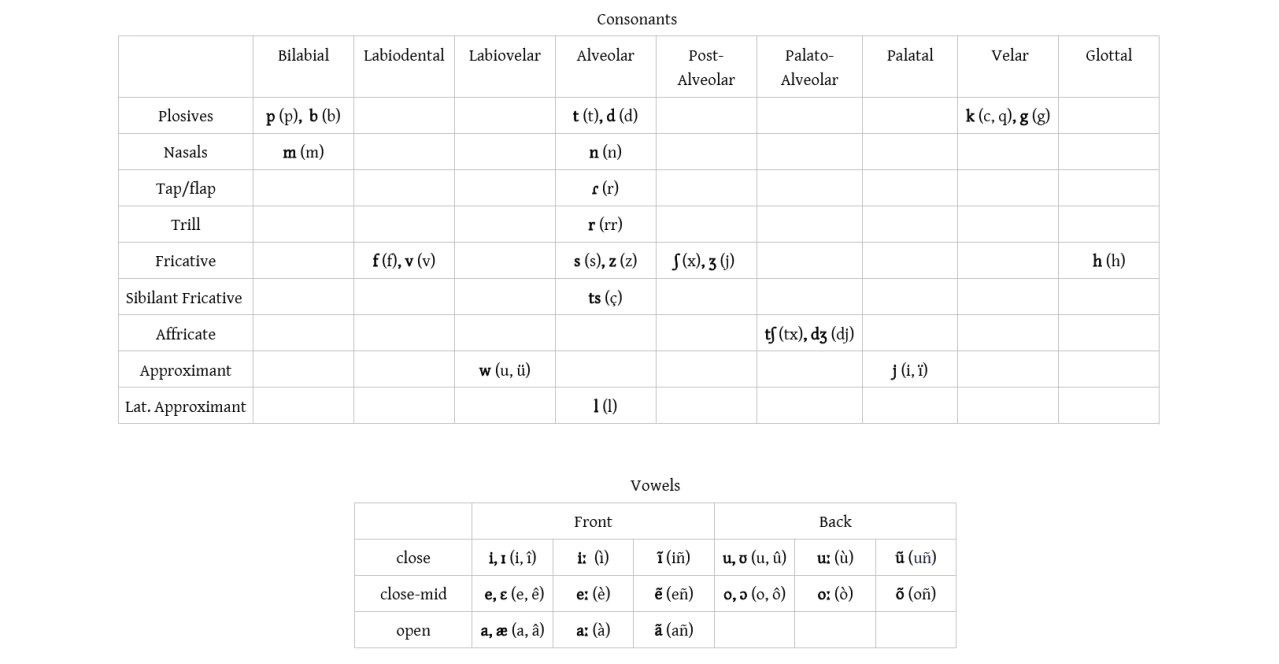( No Title )
And here it is, the phonology of Montreiano (Moñtxeianu). The bolded letters are the sounds with the orthographic representation in parenthesis. I decided that Montreiano went through an orthographic reform that regularlized a lot of things. Of course, in the real world even with reform you can find pre-reform spellings of things, so Montreiano at times allows this as well. This is actually largely what I did for the original, but decided to go my own way with some parts of the orthography, namely:
- All instances of
/dʒ/,
/h/,
/v/, /ʃ/, /ts/, /tʃ/, /z/,
/ʒ/ are represented by dj, h, v, x, ç, tx, z, j
- Despite an entirely predictable rule for when the vowels /æ/, /ɛ/, /ɪ/, /ɔ/, /ʊ/ appear (in stressed, closed syllables), they are represented by â, ê, î, ô, û, because I like torturing people and making writing more ornate.
- The sounds /w/ and /j/ are represented by u and i normally, but if confusion may arise (as in they end up among lots of other vowels), they are represented by ü and ï
And yes, h does represent /h/. Montreiano decided to get rid of spellings using the “dead h”, and recycle it for /h/, which shows up in words where Standard Spanish uses /x/, like “ojo”. It’s also useful for /h/ because where Standard Spanish changed /f/ to /h/ and then lost that, as in “hormiga”, Montreiano kept it.
Also, I’m considering adding nasal variants of
/æ/, /ɛ/, /ɪ/, /ɔ/, /ʊ/, but I’m not 100% sure on that. I’ll have to think about that more.

Recent Comments